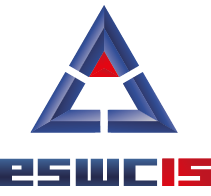The LIDER project is gathering feedback on a roadmap for the use of Linguistic Linked Data for content analytics. We invite you to give feedback in the following ways:
Excerpt from the roadmap
Full document: available here
Summary slides: available here
Content is growing at an impressive, exponential rate. Exabytes of new data are created every single day. In fact, data has been recently referred to as the “oil” of the new economy, where the new economy is understood as “a new way of organizing and managing economic activity based on the new opportunities that the Internet provided for businesses” .
Content analytics, i.e. the ability to process and generate insights from existing content, plays and will continue to play a crucial role for enterprises and organizations that seek to generate value from data, e.g. in order to inform decision and policy making.
As corroborated by many analysts, substantial investments in technology, partnerships and research are required to reach an ecosystem consisting of many players and technological solutions that provide the necessary infrastructure, expertise and human resources required to make sure that organizations can effectively deploy content analytics solutions at large scale in order to generate relevant insights that support policy and decision making, or even to define completely new business models in a data-driven economy.
Assuming that such investments need to be and will be made, this roadmap explores the role that linked data and semantic technologies can and will play in the field of content analytics and will generate a set of recommendations for organizations, funders and researchers on which technologies to invest as a basis to prioritize their investment in R&D as well as on optimizing their mid- and long-term strategies and roadmaps.
Conference Call on 19th of February 3 p.m. CET
Connection details: https://www.w3.org/community/ld4lt/wiki/Main_Page#LD4LT_calls
Summary slides: available here
Agenda
- Introduction to the LIDER Roadmap (Philipp Cimiano, 10 minutes)
- Discussion of Global Customer Engagement Use Cases (All, 10 minutes)
- Discussion of Public Sector and Civil Society Use Cases (All, 10 minutes)
- Discussion of Linked Data Life Cycle and Linguistic Linked Data Value Chain (All, 10 minutes)
- General Discussion on further use cases, items in the roadmap etc. (20 minutes)
In addition, the call will briefly discuss progress of meta-share linked data metadata model.
The call is open to the public, no LD4LT group participation is required. Dial-in information is available. Please spread this information widely. No knowledge about linguistic linked data is required. We especially are interested in feedback from potential users of linguistic linked data.
About the LIDER Project
Website: http://lider-project.eu
The project’s mission is to provide the basis for the creation of a Linguistic Linked Data cloud that can support content analytics tasks of unstructured multilingual cross-media content. By achieving this goal, LIDER will impact on the ease and efficiency with which Linguistic Linked Data will be exploited in content analytics processes.
We aim at providing an ecosystem for the establishment of a new Linked Open Data (LOD) based ecosystem of free, interlinked, and semantically interoperable language resources (corpora, dictionaries, lexical and syntactic metadata, etc.) and media resources (image, video, etc. metadata) that will allow for free and open exploitation of such resources in multilingual, cross-media content analytics across the EU and beyond, with specific use cases in industries related to social media, financial services, localization, and other multimedia content providers and consumers.
Take a personal interview to include your voice into the roadmap
Contact: http://lider-project.eu/?q=content/contact-us
The EU project LIDER has been tasked by the European Commission to put together a roadmap for future R&D funding in multilingual industries such as content and knowledge localization, multilingual terminology and taxonomy management, cross-border business intelligence, etc. As a leading supplier of solutions in one or more of these industries, we would need your input for this roadmap. We would like to conduct a short interview with you to establish your views on current and developing R&D efforts in multilingual and semantic technologies that will likely play an increasing role in these industries, such as Linked Data and related standards for web-based, multilingual data processing. The interview will cover the below 5 questions and will not take more than 30 minutes. Please let us know on a suitable time and date.





